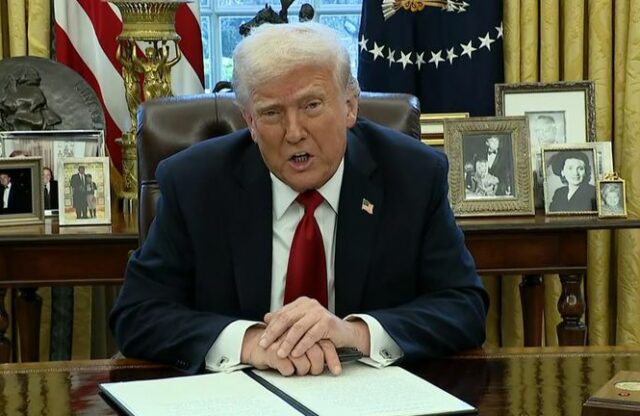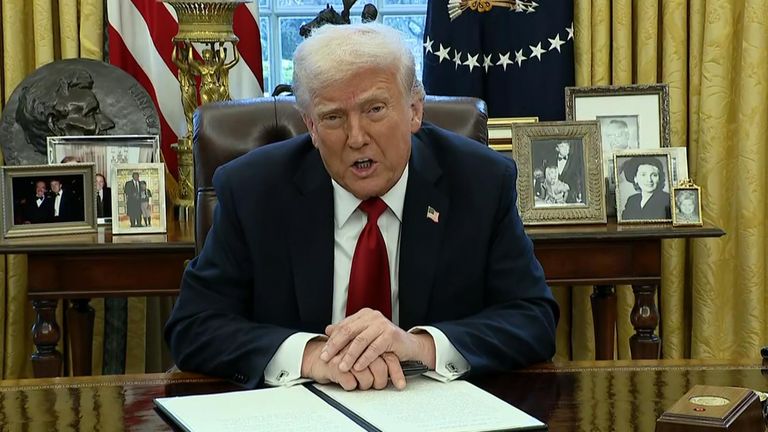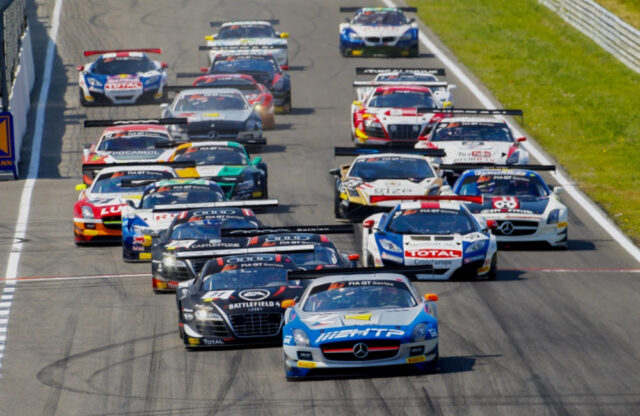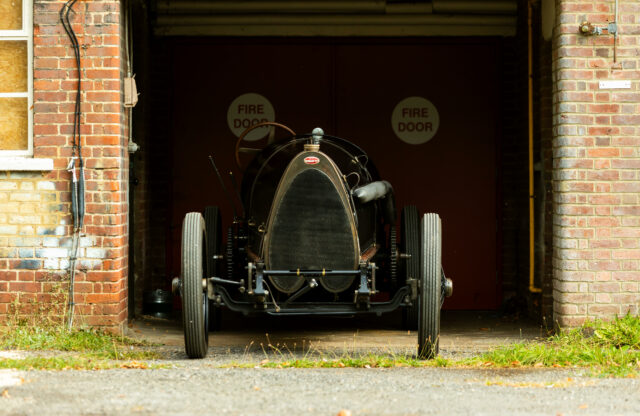President Trump’s sweeping 25 percent tariffs on cars imported into the US will not affect classic cars 25 years old or more, according to the executive order issued on April 2 and coming into effect at midnight Washington DC time on that same day.
However, despite changes since then, including reductions for imports from the UK, some car parts will still be hit, including items for historic vehicles.
Page 10 of the executive order states: “On or after April 3, 2025, vehicles that are at least 25 years old at the time of entry will be fully exempt from the 25 percent tariff on imported passenger vehicles and light trucks, under heading 9903.94.04, regardless of origin, make or model.”
The US Customs and Border Protection agency currently applies a 2.5 percent duty to imported passenger cars, and this will remain in place for all cars. The 25 percent tariff will be added to the 2.5 percent duty for cars and light trucks under 25 years old. The 25-year exemption aligns with the long-standing rule that allows cars not originally manufactured for the American market to be imported into the US.
This is a great relief for the collector car world. We talked with several dealers and shipping agents ahead of the exemption announcement, all of whom were worried about the effect on the market that a 25 percent tariff would have. Martin Button, experienced shipping agent and global brand ambassador for CARS, said: “All of the classics that we bring in attract 2.5 percent duty, and if this is put up to 2.5 percent duty plus a 25 percent tariff, it’s going to completely kill the market.”
Dmitriy Shibarshin of West Coast Shipping had a similar view before April 2, saying: “It will definitely have an effect on business, although I think the people who are buying the more expensive vehicles will probably continue to do so, but maybe they wouldn’t sell them overseas.”
The UK’s Historic & Classic Vehicles Alliance (HCVA) was one of the first organisations to issue a statement about the tariffs, with its CEO Dale Keller telling Magneto that: “Historic vehicles and parts are by nature already built, classified and valued, and there is no ability to recreate them in the US. Applying a tariff on these vehicles and parts is therefore an unintended consequence of policy intended for a totally different set of objectives.”
On May 9, the HCVA issued a follow-up statement warning of continued impacts to the UK automotive parts supply sector despite the welcome relief for car manufacturers in May 8’s trade agreement announcement with the US. The alliance states that certain car parts, including those for historic vehicles, will be one of the only remaining UK exports still caught by the penalising 25% tariff rate.
“UK historic vehicles have long been popular with enthusiasts in the USA and keeping these vehicles on the road depends on importing parts from the UK’s specialist supply chain,” said Dale Keller. “By applying the automotive tariff relief through a quota mechanism on 100,000 vehicles, the trade agreement has left many in the parts sector high and dry from access to lower tariffs as it stands. These pre-existing and replacement parts for historic vehicles have no reasonable prospect of being recreated as newly manufactured in the USA and surely should fall outside the US policy objectives. The HCVA will continue to urge the UK Government to seek more favourable terms in its ongoing negotiations to ensure the specialist parts supply chain in the UK remains viable for the future preservation of an important industrial and design legacy.”
Although the exemption for classic cars is a great relief, the situation is more difficult for new vehicle companies, including low-volume manufacturers such as Morgan, which export a high proportion of their cars to the US.
It’s also worth noting that the 2.5 percent duty that’s been charged by US Customs and Border Protection for many years is significantly lower than that charged by most other countries for imports; most European countries charge ten percent plus low-rate VAT. This has long been a source of dissatisfaction for those exporting cars out of the US.




